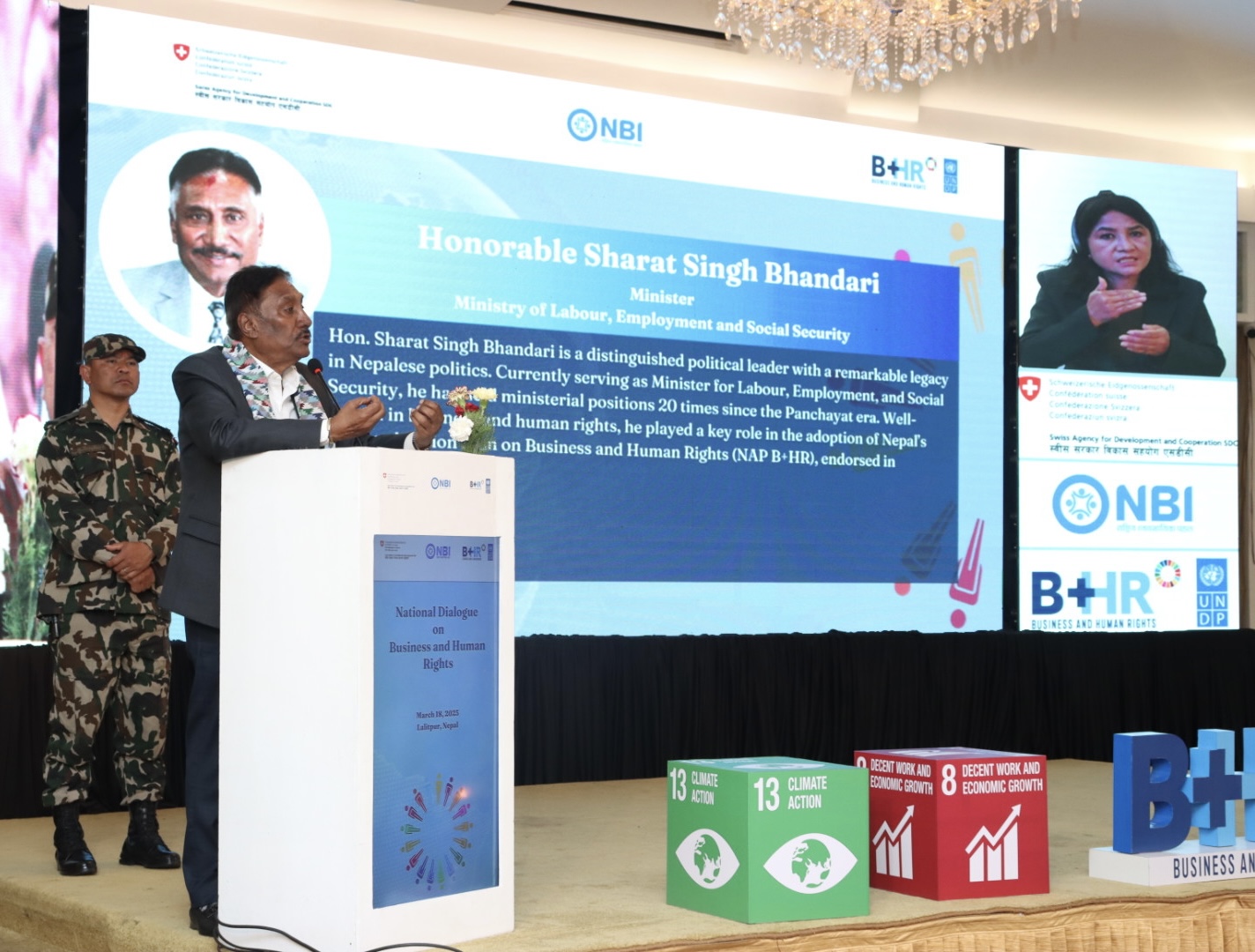KATHMANDU, Aug 14: The US State Department’s 2024 Country Reports on Human Rights Practices has highlighted persistent concerns over Nepal’s human rights situation, citing credible reports of arbitrary killings, torture, restrictions on press freedom, and forced labour, while noting that the government’s enforcement of accountability remained inconsistent.
The report released on Tuesday states there were “no significant changes in the human rights situation in Nepal during the year” but documented a range of violations, including arbitrary or unlawful killings, arbitrary detention, curbs on media freedom and human trafficking. While authorities took credible steps to investigate some cases, the State Department noted they did not consistently punish convicted officials.
The State Department highlights weaknesses in the enforcement of the Labour Act 2017, noting that while workers in the public sector generally enjoyed legal protections, enforcement in the private and informal sectors was minimal. Occupational safety and health (OSH) standards were described as “the most neglected area” of labour law enforcement, with insufficient inspectors and poor monitoring. Over 70 percent of Nepal’s workforce remains in the informal economy, with women disproportionately represented and lacking adequate protections.
Govt failed to curb rights abuse by non-state actors: Insec

Despite laws prohibiting marriage before age 20, child marriage remains widespread, particularly in Dalit and Madhesi communities. Police registered 52 cases of child marriage in the year ending mid-July. The government continues to recognise only Tibetan and Bhutanese refugees, and has not issued refugee cards to Tibetans since 1995. The majority of Tibetan refugees remain undocumented. Following the 2023 “false Bhutanese refugee” scam, restrictions on civil registration for refugees tightened further.
Although President Ramchandra Poudel in August endorsed amendments to the Enforced Disappearances Enquiry, Truth and Reconciliation Commission Act, intended to revive transitional justice efforts from the 1996–2006 conflict, the report notes no significant progress in implementation. The National Human Rights Commission (NHRC) received no official allegations of arbitrary killings by security forces, yet civil society groups reported incidents linked to prison authorities. Between January and mid-August, NGOs documented four deaths in custody attributed to torture, poor medical care and dire prison conditions. One high-profile case involved Sunil Shahi, who died in Kailali District prison in April after allegedly being beaten by staff and inmates following an escape attempt. His body reportedly bore severe injuries and an investigation was underway. In February, the government provided compensation to the family of Padam Limbu, who died from police-inflicted injuries during a 2023 protest, declaring him a “martyr” for his activism.
Although Nepal’s constitution guarantees freedom of expression, the report says overly broad laws allow the government latitude to restrict speech. The Tibetan community continued to face limits on cultural and religious expression. Similarly, the Federation of Nepali Journalists (FNJ) reported that journalists were denied access to cover National Democracy Day celebrations in February due to last-minute requirements for special entry passes. Journalists also faced physical attacks, threats and vandalism, with the report citing December’s intimidation of investigative reporter Gopal Dahal by Dharan Mayor Harka Sampang and his supporters. Public transport operators reportedly assaulted journalists covering a July protest against ride-sharing services, but the government took no action.
Despite legal safeguards, the report states that law enforcement agencies often arrested individuals before investigations, relying on forced confessions in a substantial number of convictions. Arbitrary detentions and violations of the 24-hour presentation rule persisted, though fewer incidents were documented compared to 2023. The May, 2024, arrest of Kantipur Media Group Chairman Kailash Sirohiya, accused of using a duplicate national ID number, was cited by the FNJ as retaliation for the paper’s reporting on political figures.
While the constitution prohibits torture, human rights groups documented credible cases of police abuse, particularly targeting marginalised communities. The NGO Advocacy Forum reported 16 instances of torture in pretrial detention facilities up to mid-August. Victims often faced intimidation and obstacles in filing complaints, and impunity for perpetrators remained a problem.
The State Department’s findings underscore systemic shortcomings in safeguarding human rights in Nepal — from abuse in detention and press intimidation to labour exploitation and unresolved wartime grievances. While there were some credible investigations into abuses, the lack of consistent punishment for perpetrators, weak enforcement of labour and safety laws, and continued restrictions on free expression and vulnerable groups remain pressing concerns.
The report was issued months late after appointees of the Trump administration significantly altered an earlier draft to align it with America First values, according to government officials who spoke on condition of anonymity. It introduced new categories such as “Life,” “Liberty,” and “Security of the Person.” The new version was described as “streamlined” and focused on remaining “aligned with the administration’s executive orders.” Notably, the introduction makes no mention of discrimination against women, members of the LGBTQ community, or discrimination based on race.







_20221219135433.jpg)





























